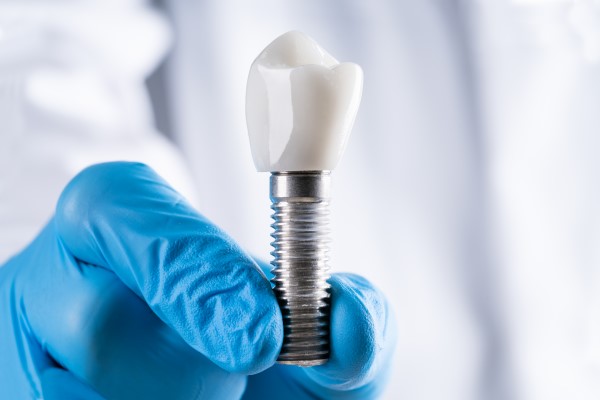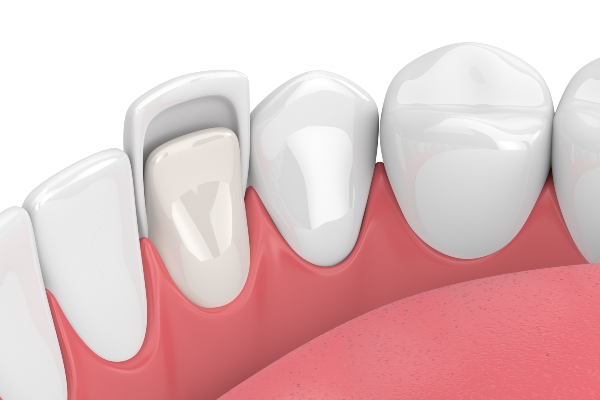Questions to Ask When Considering a Dental Implant for a Missing Tooth

Dental implants are highly recommended by dentists when it comes to replacing missing teeth. These restorations are artificial teeth roots that go right in your jaw. Implants replace the lost roots of missing teeth, and they are the only oral prosthetics that do so.
Implants help to prevent the bone tissue loss that takes place when teeth fall out due to bone tissues in the jaw not getting the stimulation they need to remain healthy. Preserving bone tissues in the jaw helps to preserve your youthful appearance.
Frequently asked questions about dental implants
Considering replacing one or more of your missing teeth with dental implants? Here are the answers to some of the questions you might have:
1. Can anyone get a dental implant?
Implants are surgically inserted into the patient’s jaw, so the person needs to be healthy enough to recover from oral surgery. People with health conditions like diabetes that hinder their ability to heal will be evaluated on a case-by-case basis to determine their eligibility.
Also, patients should have enough healthy bone tissues in their jaw to hold implants in place. Those who lack the bone tissues needed to keep implants secured might have to get bone grafts to make up for their deficiencies.
2. Which restorations can implants be used with?
Implants are typically used to serve as a base for a crown that replaces the patient’s lost teeth, but they can also be used to secure other restorations like bridges and dentures. This typically helps to lower the patient’s dental bill since implants cost more than any other oral prosthetic. Instead of having to replace all of their missing teeth with implants, patients can use them as bases for restorations that are designed to replace multiple teeth.
3. How long does the process take?
The process of getting implants can take up to six months – which is the time it takes for the implant to fuse with the bone tissues holding it in place, making it a part of the patient’s jawbone. After the surgical installation, the patient might have to wait up to six months before the implant is as secure as a real tooth’s roots. Many dentists wait for osseointegration to be complete before attaching restorations to implants, but there are same-day restorations that can be attached to implants right after they have been surgically inserted.
4. What are the benefits of getting implants
No other oral prosthetic comes close to implants when it comes to how well they serve as replacement teeth. The benefits of getting dental implants include:
- No need for specialized cleaning
- Can last an entire lifetime
- Feels and function like a real tooth
- Prevents jawbone deterioration
- Virtually as good as a real tooth
Explore dental implants
Dental implants allow you to get back to how your life was before your tooth fell out. Give us a call or stop by our Hackensack clinic to learn more about teeth replacement options like implants.
Request an appointment here: https://www.smilebeautification.com or call Precision Smiles. at (201) 204-1355 for an appointment in our Hackensack office.
Check out what others are saying about our dental services on Yelp: Dental Implants in Hackensack, NJ.
Recent Posts
One of the leading tooth replacement choices dentists and patients are opting for is dental implants. When it comes to tooth replacement, evaluating the different options can sometimes seem overwhelming. However, with dental technology becoming more advanced and available for people with one or more missing teeth, there is an option for almost everyone. This…
Dental implants have always been the most stable restorations you could ever have. They are a level higher than traditional dentures or fixed bridges. Each implant mimics the basic structures of a natural tooth. It is stable on its own. Imagine what it would be like to have them replace your dental arches. If you…
Dental implants enable you to get as close as you can get to replacing your natural teeth roots, both in terms of function and health benefits. Dental implants require regular care like your natural teeth, which is the only way to ensure that your implant-supported teeth can last a lifetime. Read on to learn about…
Deciding to get dental implants can be nerve-racking and exciting at the same time. Knowing as much as you can about the procedure can help clear up any apprehension. These restorations are durable and lasting. Understanding what to do while talking and chewing will be helpful. If you want to learn some pointers about speaking…


